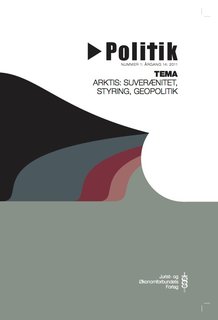Global Miljøstyring av Olje- og Gassaktiviteter i Arktis: et institusjonalisert samarbeid eller en uformell dialog?
DOI:
https://doi.org/10.7146/politik.v14i1.27472Resumé
Multi-stakeholder cooperation, with focus on private business entities, is receiving increasing attention in the governance literature. Lately, we are witnessing the consequences of global warming; large areas in the Arctic are becoming ice-free, opening for oil and gas activities. This development requires answers to how we should govern these activities in a vulnerable Arctic environment. In a myriad of multi-stakeholder relationships, institutionalized relationships between private and public actors have been prevalent. Consequently, should we expect to witness formal cooperative arrangements between the oil and gas industry, as business representatives, and the Arctic Council, as a representative for the public authorities? Or has global governance theory exaggerated the extent of multi-stakeholder cooperation? Surprisingly, a formal cooperation among the actors does not appear to exist. However there is a high presence of informal cooperation. The question remains; has there been a too narrow focus on the different forms of collaborative action?
Downloads
Publiceret
Citation/Eksport
Nummer
Sektion
Licens
Forfattere, der publicerer deres værker via dette tidsskrift, accepterer følgende vilkår:
- Forfattere bevarer deres ophavsret og giver tidsskriftet ret til første publicering, samtidigt med at værket er omfattet af en Creative Commons Attribution-licens, der giver andre ret til at dele værket med en anerkendelse af værkets forfatter og første publicering i nærværende tidsskrift.
- Forfattere kan indgå flere separate kontraktlige aftaler om ikke-eksklusiv distribution af tidsskriftets publicerede version af værket (f.eks. sende det til et institutionslager eller udgive det i en bog), med en anerkendelse af værkets første publicering i nærværende tidsskrift.
- Forfattere har ret til og opfordres til at publicere deres værker online (f.eks. i institutionslagre eller på deres websted) forud for og under manuskriptprocessen, da dette kan føre til produktive udvekslinger, samt tidligere og større citater fra publicerede værker (se The Effect of Open Access).

